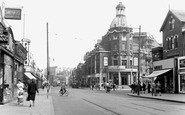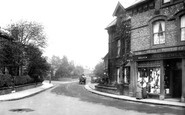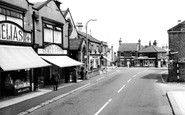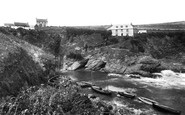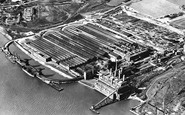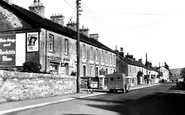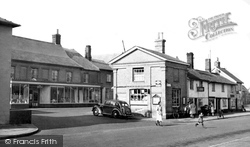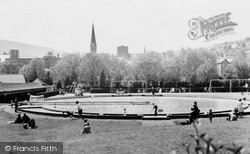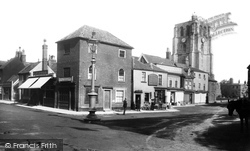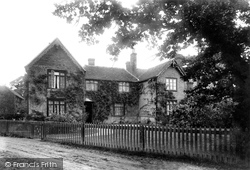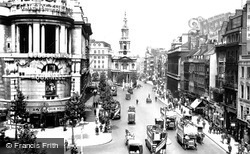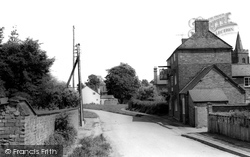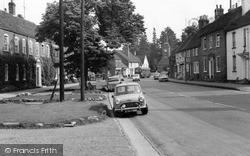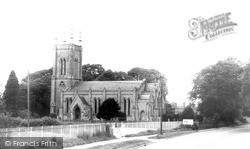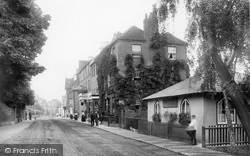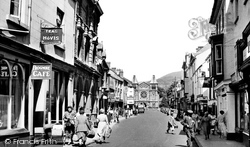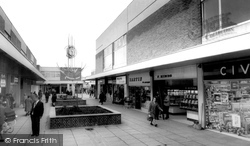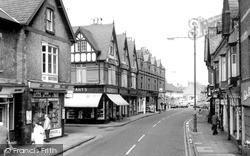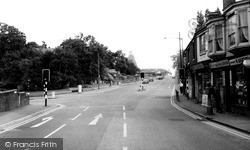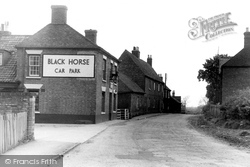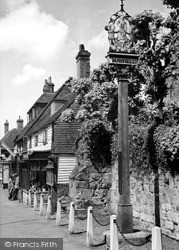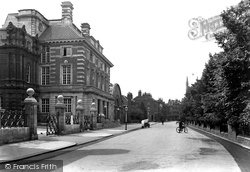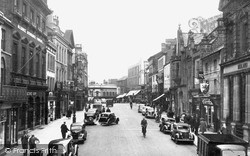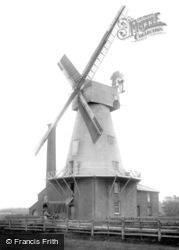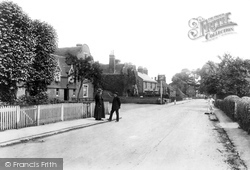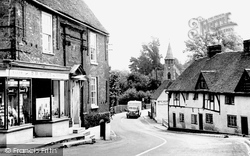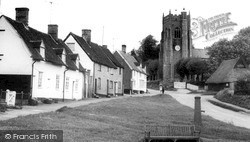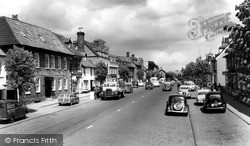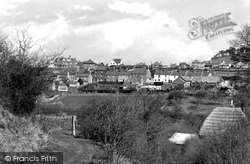Places
Sorry, no places were found that related to your search.
Photos
Sorry, no photos were found that related to your search.
Maps
Sorry, no maps were found that related to your search.
Books
Sorry, no books were found that related to your search.
Memories
655 memories found. Showing results 111 to 120.
F 18a Short Biographical Reminiscence
F-18 From a distance, Tam watched in silence. Like him, the monster had remained in the same place all night, dormant; poised. His eyes hurt from too many fags, the odd tear, and staring ahead into the night ...Read more
A memory of Whiteinch in 1962 by
Tuck Shop
I remember going to the shop run by Mr and Mrs John Croft in Pelham Road at break time, to buy hot jam doughnuts and beer lollipops. Lived in Gladstone Road, went to Pelham School and Merton Rush (on the corner of Dorset/Kingston Road). ...Read more
A memory of Wimbledon in 1962 by
Broomfield Lane
I wasn't around in 1913, but went to Broussa School on Broomfield Lane from 1961-1963. It was there I first heard of the Beatles! A girl in the middle school brought in the 'Please please me' album and played it to us 10 year olds at ...Read more
A memory of Hale in 1962 by
Waiting For The Bus
To the right of this picture, on the High Street was the town hall. For seven years I waited there every morning for the Jump Circular bus, or if I missed it the Rotherham bus to take me into Barnsley where I was at the then ...Read more
A memory of Hoyland in 1961 by
When I Was A Little Younger
I lived in Goldsithney and used to go fishing with the Allans, Jeff and David and the son of Mr Murray a French teacher at Humphrie Davy. My cousins lived just 50 yards from the Allans and were called Tamblyn. We all ...Read more
A memory of Prussia Cove in 1961 by
The Village
I moved to Borehamwood from Acton, North West London, when I was three years old. I spent my childhood there, scrumping in neighbours gardens, getting the greenline bus into London for trips to Selfridges at Christmas, to London Zoo ...Read more
A memory of Borehamwood in 1961 by
Hummed To Sleep By A Factory
We used to live on what was called The Avenues on the Rylands estate. This was situated behind the Princess shopping parade, so called after the name of the local flea pit where all the kids went to Saturday morning ...Read more
A memory of Dagenham in 1961 by
The Graig Secondary Modern Bassaleg
I went to the Graig School during the sixties. It was a great school and a great location. I lived in St.Mellons near Cardiff, but we all went to Bassaleg as St.Mellons was in the old county of Monmouthshire. We ...Read more
A memory of Bassaleg in 1961 by
St Thomas Youth Club
The club was on Sunday night. There was even a group, cannot remember the name, but Chris Booker ran it. I remember the first time I heard them, pretty good they sounded too. One Sunday at evensong they played in the ...Read more
A memory of Hanwell in 1961 by
People At Scrag Oak
I remember working at weekends and school holidays at Scrag Oak. I was still at school and worked there for about two years. The house and farm was owned by Mr George Edward-Jones (the spelling may be wrong). The one full time ...Read more
A memory of Scrag Oak in 1961 by
Captions
405 captions found. Showing results 265 to 288.
The wide shop on the left belongs to Henry Abbot, the long-established draper's, which became a Co-op in the late 1990s. Each alternate window on the first floor, has been blocked.
A final view of the Park with plenty of activity around the paddling pool, but with no one in it.
The tall brick building was Thomas Self, greengrocer and market gardener; to the left was Clement Poll, butcher.
The fine old farmhouse sits on a brick base and is hung with tiles and swathed in creeper.
The Gaiety Theatre dominates the corner where the Aldwych breaks off from the Strand.
The camera looks north towards the large green; on its right is the three- storey early 19th- century red brick Royal Oak pub.
We have moved nearer the High Street junction.
The parish church lies east of the Almshouses, which can be seen beyond the chancel.
The camera looks north towards the large green; on its right is the three- storey early 19th- century red brick Royal Oak pub.
Sunbury-on-Thames was only incorporated into Surrey in the administrative changes which took place in 1965, but the village dates back to Anglo-Saxon times.
The Frogmore Café (left) offered busy shoppers a break until 1969, when it was taken over by Sketchleys the cleaners.
Typifying the sixties town planning dream here, Broad Walk presents a range of shops away from the hazard and pollution of the motor car.
This scene, looking north along Banks Road from the corner of Eaton Road, has changed very little in recent years. There is still a newsagents on the corner with Alexandra Road on the left.
This picture gives a tantalising glimpse of the wonderful Red House Cone, which belongs to Stuart & Sons, makers of crystal glass.
In a not unattractive red brick, end-of-village group, it is impossible not to notice the Black Horse pub, with its well- mannered frontage and attractive pantiled roofs.
High Street c1955 Mayfield's attractive High Street, with its raised brick pavements and fine architec- ture, speaks of the days when Mayfield was an important iron town.
The ball-finialled gate piers belong to the Crown Court's forecourt, a sedate Italianate stone building somewhat dwarfed by Hall and Warwick's confident Shire Hall built for the County Council.
The Golden Lion pub on the right had its earliest licence in 1684, became subdivided into shops but reverted to an inn again by 1740.
Here we see a fine example of a white weatherboarded Kentish smock mill with a two-storey square brick base and wooden staging for access to the sails.
Here we see some fine brick houses, some with decorative bargeboards and Flemish-style gables.
Bridge Street curves down to the river. A variety of architecture is to be enjoyed here, from red brick houses to timber-framed cottages.
In this view the church seems to close the end of the village green. The three groups of cottages are timber-framed and date from the 17th and 18th centuries.
The wide High Street extends for about half a mile. On the left stands the Angel Hotel of chequered brick, which dates from the 18th century. The hotel was later completely modernized in 1989.
The village street at Bothenhampton (middle distance, left to right), with suburbia beyond, seen from the vicinity of Quarry Farm with an apple orchard and thatched cottages above
Places (0)
Photos (0)
Memories (655)
Books (0)
Maps (0)



